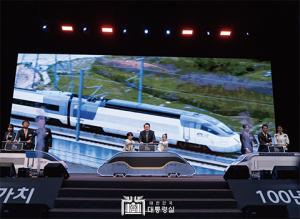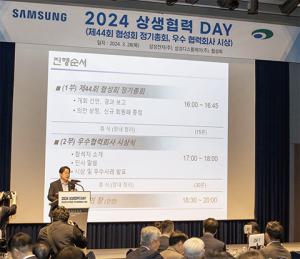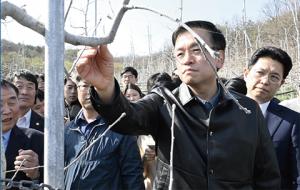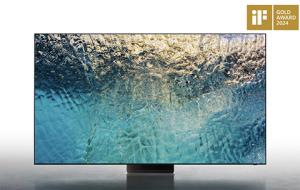 |
| ▲ Hongjin CEO Jinki Hong |
Last year was a year of great interest in the electric vehicle and battery industries, including the secondary battery craze. What about 2024? In the case of the Chinese finished car market, a low price policy was promoted as a merit to increase the growth rate, and LFP batteries received a lot of attention as a factor in this competitiveness. According to one research, the proportion of LFP batteries installed in electric vehicles around the world increased from 17% in 2020 to 36% in 2022. Perhaps it was a planned process that domestic battery companies began developing LFP one by one. Meanwhile, Hongjin, a small but strong company in Asan, South Chungcheong Province, which is the only company in Korea that possesses unrivaled lithium iron phosphate battery packaging technology, has built an automated lithium iron phosphate battery laser packing line automation facility at its Asan factory targeting the secondary battery market for the first time in Korea.
 |
Automated lithium iron phosphate battery laser packing line
Hongjin completed the construction of an LFP battery packing production line in the second half of last year and confirmed that it plans to begin full-scale LFP battery production. What is especially interesting about this production line is that an all-in-one process facility line has been built, from the first automatic battery cell inspection to assembly status inspection, laser welding, and finished product inspection. Until now, inexpensive bolting type packing has been mainly used, but Hongjin is the first company in Korea to use high-capacity laser welding equipment to introduce packing technology that completely eliminates various problems arising from bolting type, which is a notable point of difference.
 |
Unrivaled technological foundation
Eyeing on ESS market
Lithium iron phosphate batteries are characterized by being cheaper and more stable than the ternary NCM (nickel, cobalt, manganese) batteries that the domestic battery industry has focused on, but it is true that Chinese companies such as CATL and BYD have mainly dominated the market.
Hongjin said “So far, the domestic battery industry has mainly used ternary batteries (lithium ion). However, as the energy density of LFP batteries continues to improve, expectations for the expansion of LFP batteries have recently increased, and the market outlook is also bright.” Accordingly, the key thing to remember is that it has become fully possible to package and supply battery cells directly in Korea. Hongjin is looking to enter the ESS market in the long term, starting with industrial use such as construction machinery, based on its lithium iron phosphate (LFP) module production facility using laser welding. As a next-generation ESS battery, it is predicted that safe and long-lasting batteries will be preferred while being less affected by size and energy density compared to existing electric vehicle batteries, so Hongjin is determined to accelerate the production of LFP batteries that are more suitable.
 |
Contributing to successful energy transition around the world
Hongjin said “The biggest characteristics of lithium iron phosphate batteries are that they are cheaper and have higher safety compared to ternary lithium-ion batteries. We have also been working in the domestic market for a long time to convert domestic and foreign lead-acid forklifts into electric forklifts by installing lithium iron phosphate batteries. By building this automated facility, we have established a system that can quickly meet the needs of a wider range of customers and supply batteries to a variety of fields by transitioning from existing OEM production to direct domestic production.” Based on the establishment of an automated LFP battery laser packing line, the company is looking at industrial batteries in Korea and ESS in overseas markets. In other words, the plan is to dominate the domestic and overseas markets at the same time, under the policy of being recognized for its supply capabilities in the domestic market and expanding the supply of batteries to the global market. The company also plans to target the construction equipment, small and medium-sized mobility, and ESS markets with its self-produced LFP batteries after completing line construction.
 |
CEO Jinki Hong said “In particular, ESS is considered an essential facility for the stable operation of the future energy market, where the use of electricity will become more diverse as flexible power sources such as new and renewable energy increase. As more ESS facilities are expected to be introduced in the future, we would like to actively contribute to the successful energy transition not only in Korea but around the world based on our LFP battery laser packing facility line. With the establishment of this automated facility, it is possible to provide faster and more stable products according to consumer needs, from battery packing to finished products equipped with BMS. Based on our ability to supply battery cell packaging, we plan to actively continue activities to replace existing lead-acid battery fields such as forklifts, electric excavators, and UPS.” In the United States, the solar energy market in particular continues to grow rapidly thanks to the government's renewable energy support policy. In fact, last year, the U.S. government invested about $430 billion in its budget to foster domestic eco-friendly industries and implemented an inflation reduction bill that significantly increased renewable energy. And Hongjin has announced the establishment of a local corporation in the United States in the first half of this year.
지윤석 기자 jsong_ps13@naver.com







